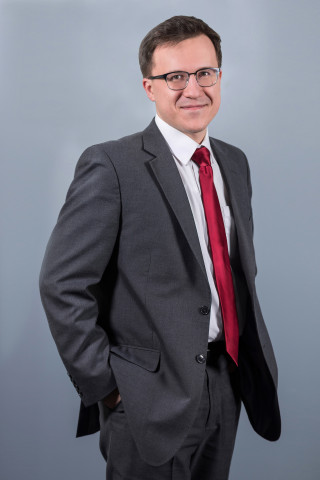With changes in regulation on internet content, personal data protection and online gambling restrictions — and perhaps more importantly, changes in how those regulations are enforced in international cases — it’s more and more complicated to reach Russian audiences with games and other digital media. Dentons Of Counsel Vladislav Arkhipov walked game makers through some practical ways to mitigate risk during his Casual Connect Tel Aviv 2015 lecture. “Russian courts will not easily give up their jurisdiction,” Vladislav said, “and this makes Russian law all of a sudden relevant for anyone who is particularly interested to engage in the Russian market.” See Vladislav’s full session below for ways to steer clear of regulatory trouble in Russian markets.


Vladislav Arkhipov is a lawyer who specializes in the games and IT industry. Since 2007 he has worked with international clients on a variety of issues in these areas as they are affected by Russian law, including media and internet regulation, privacy and intellectual property law. He is also an associate professor at St. Petersburg State University, lecturing on internet law and the legal challenges of the digital age. He recently described his work and insights into the legal aspects of the game industry for GameSauce.
GameSauce: Tell us about the work you do at your company? How did you come to work at your current company?
Vladislav Arkhipov: As an Of Counsel at Dentons, I do what I would call “strategic consulting” on IT/IP legal matters, draft original and adapt to the Russian legal environment international contracts and T&Cs, and represent clients in courts. Besides that, a big part of my job is business development. My particular focus is the video game industry. I joined Dentons after a number of years as an Of Counsel with other firms, and it was a conscious and well-weighed decision. The IT/IP practice of this firm is unique and allows a lot of opportunities for personal fulfillment for anyone who loves the subject matter.
As an Associate Professor of St. Petersburg University, I deliver lectures in Internet Regulation and Public and Private Law in the Digital Age. Both are my authored courses into which I invested a lot intellectually and emotionally, and they allow me to speak about, among other interesting innovative developments, computer games and virtual worlds. It is an exciting opportunity to help the academic environment to be up to date. I have never, ever left the university after graduating, being involved in projects and teaching various disciplines and, after starting in general jurisprudence, I am now focusing on an area of genuine interest.
GS: What do you enjoy most about your jobs?

Vladislav: In both cases, it is the ability to invest my professional skills and enthusiasm into the development of something larger which has personal value for me. I love video games and, based on research, believe that they make people happier and less violent in real life, so this is, for me, a worthy cause to pursue. Besides that, in terms of legal practice, it is really exciting to achieve victory in disputes (something which, in a sense, evokes good martial spirit) or agreement in negotiations. As regards teaching, nothing is better than seeing students become enthusiastic after a lecture. Also, thinking and writing papers is a source of delicate intellectual satisfaction by itself.
GS: How have your past career experiences been helpful to you in your current position?
Vladislav: I have not had career experiences which are too far from my present position, and I can say that everything I learned and practiced before is now helpful in many unique ways. For instance, I started with “ordinary” corporate law practice, which now adds perspective to advising on IT/IP matters. Or, once at the university I had to substitute for a colleague in a brief set of lectures in customs law, which was a challenge and required a lot of additional resources to prepare. But today it helps me deal with online shopping and digital delivery matters when clients need advice.
GS: What inspired you to pursue law practice and teaching?
Vladislav: I think I can say that from my childhood I valued orderly, civilized and friendly relationships and law, if properly perceived, is the main enabler here. This predefined my initial choice of career (not to mention that it is possible to enjoy jurisprudence just for the fun of it). Teaching is also very rewarding by itself. And ultimately, putting all these activities in line with a passion for games is the main source of my inspiration.

GS: Do you have any advice for someone interested in pursuing the same career?
Vladislav: Despite the fact that many think it is a bit naïve, I am a big proponent of the idea that it is important to consciously identify, with as much precision as possible, what you really enjoy doing. Be honest about that and make strong efforts to pursue your way. People like different things, and this will hardly result in everyone doing the same thing. Also, this may come in many unexpected combinations, as games and law are.
GS: How did you become involved in the game industry? How did you make your start? What do you find to be the most fun part?
Vladislav: While practicing corporate law with my previous firm I learned about legal development in respect of virtual property (Marc Bragg v Linden Research Inc.) I was always excited about the fact that you can “own” something in a virtual world and use it as a source of income. Since then I started snowballing efforts in bringing my profession closer to videogames and virtual worlds. The most fun part of it is, probably, that you work as a kind of alchemist who brews conservative law with innovative games, which brings unexpected results.
GS: What are some of the challenges you have faced in your current position? How have you overcome these challenges?

Vladislav: Probably one of the biggest challenges in the field of games and law is the skepticism of others, which comes from two directions at the same time. On the one hand, many “classic” lawyers believe that games are not serious and do not deserve attention. On the other hand, some (but not all) people from the game industry are not always willing to consider legal aspects of games or look into fresher approaches, such as viewing a virtual world as a legal system. In my current boundaries of communication I am using much “illumination” and persuasion as a way of overcoming these challenges, and am continuing on a broader scale.
GS: What do you do in your free time? What are your hobbies?
Vladislav: I will be honest: besides sharing time with my family, I play computer games and read a lot about different aspects of them in my free time. Besides that, I like speed walking in forests and natural parks. Reading books (fiction, academic, self-improvement) is natural in the context of my upbringing, so I do not consider it as a hobby, just as an integral part of life.
GS: If you were not in this industry, what would you be doing?
Vladislav: Most likely, reading lectures and writing treatises on the history of political philosophy. I enjoyed it a lot and learned a lot from it when I was a student, from Plato to Machiavelli to Hegel. This is quite an exciting area of knowledge, but even in this field you can find a connection with games — when sketching models of relationships in an online world.
GS: What was your dream job as a child?
Vladislav: Definitely an inventor/engineer. During my early and mid- school years, I kept a large copybook in which I copied those technological solutions and electrical circuit schemes from youth technical journals which could eventually be helpful to create a flying dream car. Later on I also programmed some computer games on Basic just for fun (as I thought then).
GS: What has been your proudest moment during your career so far? What led to this moment?
Vladislav: Above all, it is recognition by colleagues from game companies whose games I have played and enjoyed. Besides that, in terms of legal practice — a few victories in complex IT disputes in court earlier this year. Conscious choice of practice created an opportunity, while preparation and some courage helped in winning. In terms of the university — making “game and law” matters known and appealing for students in Russia.
GS: What do you think will be the next big trend in the industry in the next three to five years? How are you incorporating this trend into your future plans?
Vladislav: There can be several trends in several directions in the industry, but I will name just one. Although I do not believe violent video games are bad, I think that people are starting to get really tired of constant massacre, eg. in MMORPGs, even if it is cartoonish. The one who finds a nonviolent setting and gameplay (and here I mean more AAA games and virtual worlds, not casual games, although it is relevant for them too, and the difference is now thin) which turns out to be successful will probably make history in the industry in terms of content.
GS: What interests you about the game industry?
Vladislav: Since my childhood I have been fascinated by the fact that you can control pixels on the screen and that such pixels can create a whole new a world. I am still fascinated by this.
GS: Are you a gamer? What are some of your favorites?
Vladislav: I am a gamer although I play much less since I got deep into legal practice. Currently I play World of Warcraft casually and alternate it with Magic: The Gathering Online. The latter is an interesting case, as for me it is not just a game, but another way to improve my general skills. I don’t know any other game which would train attention, memory and, most of all, thinking before acting with similar fun and depth (except for, maybe, chess).
GS: What should a game have to catch your attention?
Vladislav: Technically, it should have delicate and responsive user interface. I am also a big fan of RPGs with a skill-based system and options to do something besides fighting. Ultima Online would be a good example here.
GS: What are your views/experiences in patenting?
Vladislav: In terms of practice, I am familiar with Russian patenting law and practice, and this year I had a success in representing a client in a patent dispute in court. Speaking about my views, I would say that, roughly, the current international patenting system is workable overall but has a lot to improve specifically for the game industry. The most painful areas in this respect are software patenting and protection of game design. The solution is yet to come.
Comments










